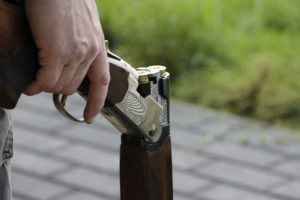
A Minnesota man faces criminal charges after a pilot reported a drone shooting as the aircraft flew over a meat-processing plant.
The Watonwan County Sheriff’s Department charged Travis Duane Winters, 34, of Butterfield, Minn., with criminal damage to property and reckless discharge of a weapon within city limits.
An unidentified drone pilot alleged Winters used a shotgun to down the $1,900 drone as it flew over poultry distributors Butterfield Foods. The pilot said he had been filming the alleged slaughter of chickens by employees due to possible COVID-19 infections.
The pilot said two people approached him as he filmed to ask about his flight. Winters admitted he shot the drone down with a shotgun, according to the Mankato Free Press.
Reports of drone shootings have inevitably grown as UAV commercial and recreational sales increase. Last year, a Long Island man allegedly shot down a DJI Mavic 2 Zoom flying near his property.
In 2015, a Kentucky man shot a drone as it flew over his property. Police charged William Meredith with criminal mischief, but a local judge dismissed the charges in 2017, stating (incorrectly) that the drone flight represented “an invasion of their privacy” and that Meredith “had the right to shoot” the drone.
Aviation attorney Jacob Tewes tells DroneLife: “Shooting down a drone is a federal crime because drones are aircraft under federal law. It would also be illegal under general criminal or civil laws in most states.”
He added:
“Using a deadly weapon to bring [a drone] down would generally only be legal if the shooter were acting in self-defense. In many states, those defenses may only work where the drone itself qualifies as deadly force.”
Tewes notes that many property owners hold a few key misconceptions when it comes to drone shootings:
- “Drones are something other than aircraft.
- Individuals own the airspace above their homes.
- There are no criminal or civil consequences for shooting down a drone.”
In the U.S., the airspace above a person’s home or business is part of the national airspace system and falls under the jurisdiction of the FAA. The agency considers drones of any size covered by Title 18 of the U.S. Code 32. The law describes “sabotage to include destruction of any aircraft in the special aircraft jurisdiction of the United States.” Violation carries a maximum prison sentence of 20 years.
Jason is a longstanding contributor to DroneLife with an avid interest in all things tech. He focuses on anti-drone technologies and the public safety sector; police, fire, and search and rescue.
Beginning his career as a journalist in 1996, Jason has since written and edited thousands of engaging news articles, blog posts, press releases and online content.
Email Jason
TWITTER:@JasonPReagan
Subscribe to DroneLife here.